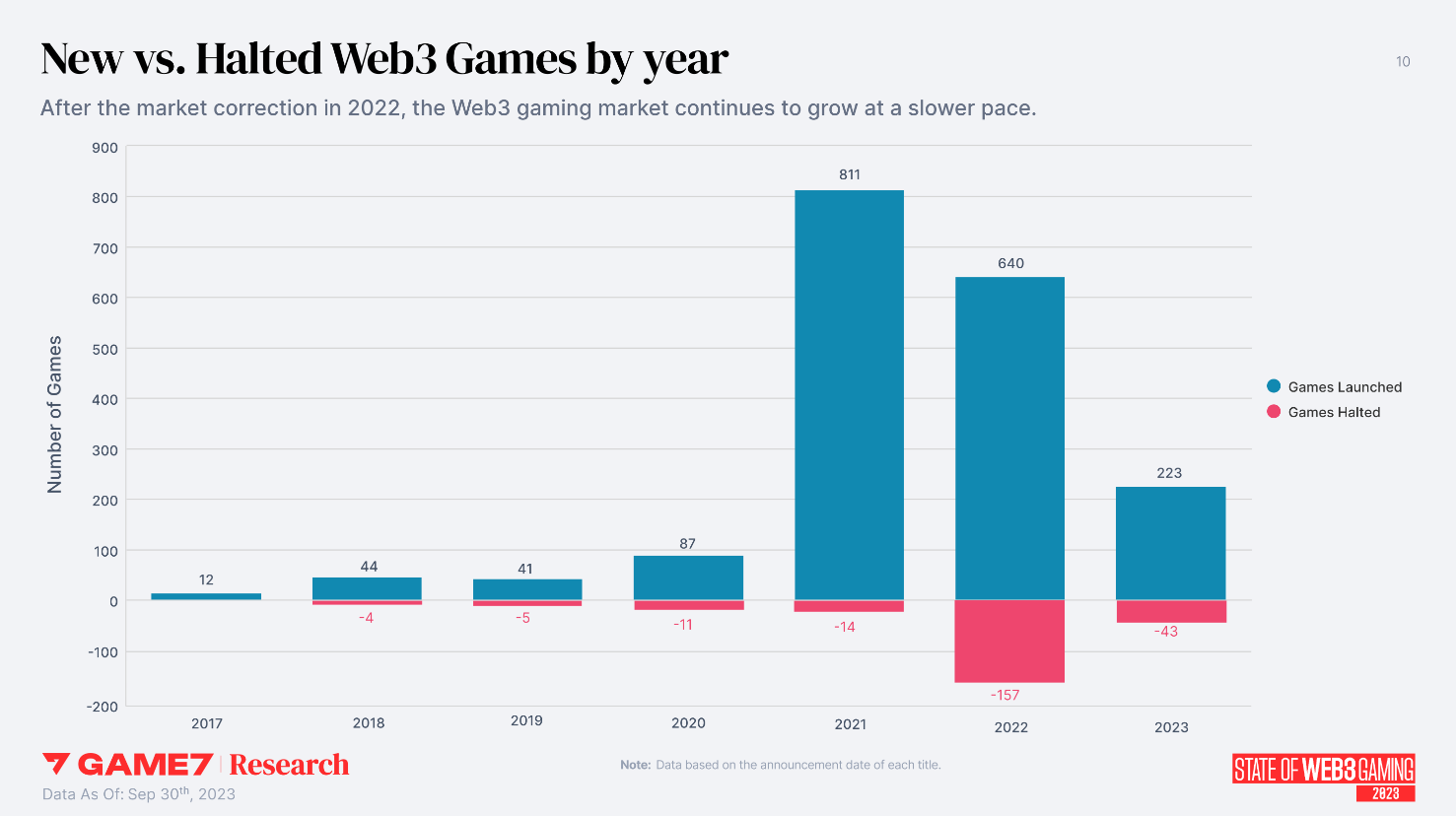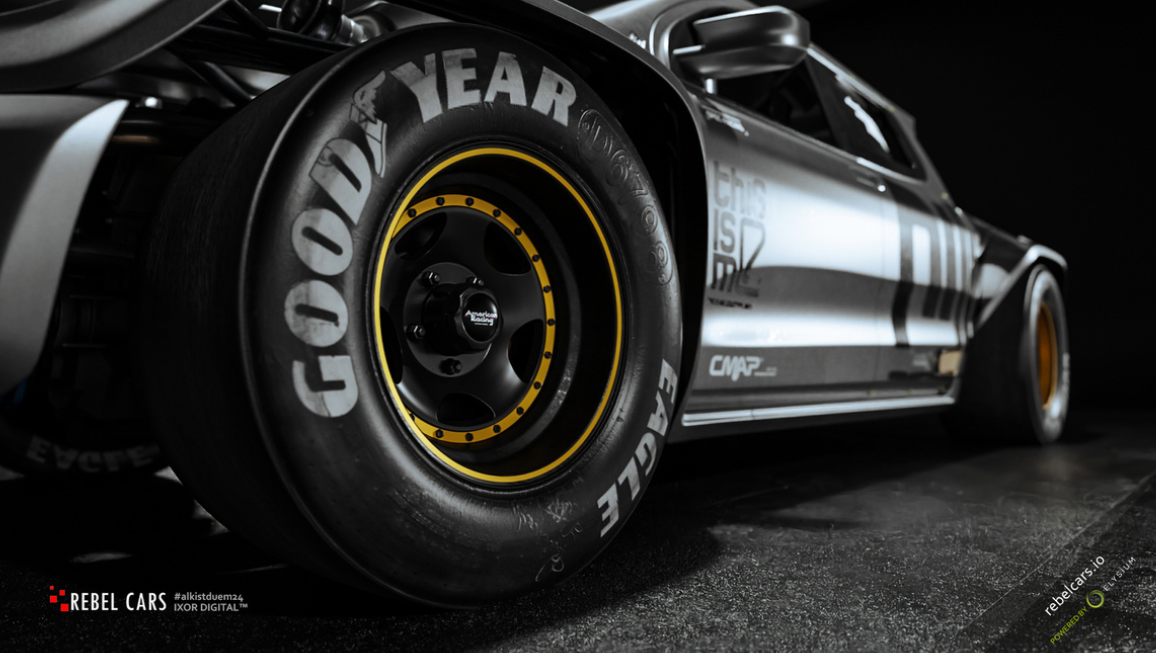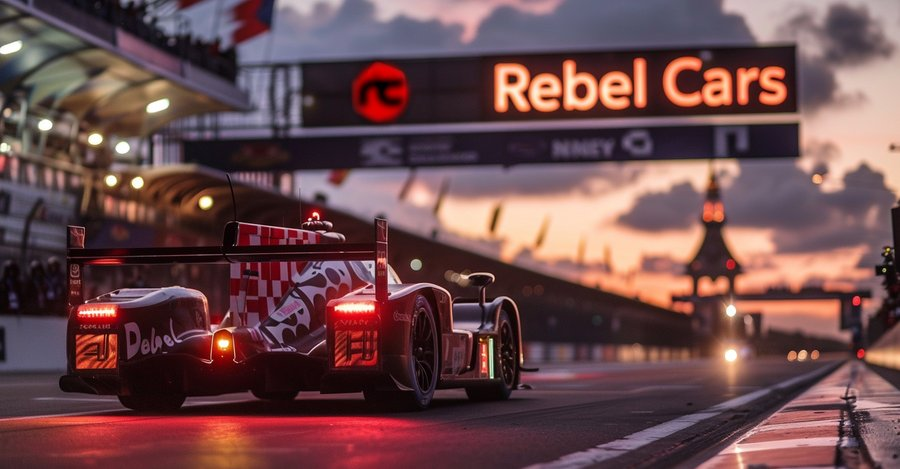Web3 gaming represents a transformative shift in the digital gaming landscape, leveraging blockchain technology to redefine player interaction and ownership. Unlike traditional games, where all assets and progress are stored on centralized servers owned by game developers, Web3 games operate on decentralized networks. During the crypto rally of 2021, the hype around Web3 gaming was at its peak, with hundreds of projects launching now and then.
However, the numbers were deceiving to show the growth of the sector since the broader gaming community was not satisfied with the end results. Gamers criticized the low-quality gameplay and bad experience. And then the crypto market crash the following year broke the spirit all along. The period should be considered a recovery phase for the sector since notable changes have occurred.
A report on the Web3 gaming industry by Game7 states that the number of game launches dropped by 65% between 2022 and 2023. Also, in 2021, the number of games launched was 29 times greater than the networks developed to support them. By 2023, this disparity had decreased to just 2.8 times. This shift underscores a growing emphasis on building infrastructure rather than merely trying to substitute existing Web2 games with Web3 versions.

There’s a shift in focus from quantity to quality, which is also visible in some emerging projects. One example is an automotive racing game, Rebel Cars ($RC). Rebel Cars promises an immersive driving simulation that stands out in the market with enhanced realistic graphics and high-end gameplay courtesy of Unreal Engine 5. The game, a pioneering force in blockchain-based racing, offers a play-to-earn model that allows players extensive ownership and trade capabilities with their virtual assets.

Rebel Cars sets itself apart by integrating high-caliber AAA gameplay with realistic automotive simulation. The game provides players with ownership of in-game assets through NFTs and features a play-to-earn model that enhances player engagement and economic activity. Customization options, dynamic racing mechanics, and a vibrant market for trading virtual assets enrich the gaming experience.
Additionally, its support by the robust ecosystems of VulcanForged and the carbon-neutral Elysium blockchain ensures sustainability, low costs, and a cutting-edge, decentralized gaming environment, making it a standout in the blockchain gaming sphere.
The game features dynamic racing mechanics and detailed car customization and fosters a vibrant secondary market for in-game assets driven by $RC tokens. These tokens incentivize player engagement and allow for global competitions and DAO-based game evolution, attracting interest from car brands and sponsors.
Rebel Cars makes the game “realistic” quite literally. The locations and cars used in the games are not imaginary but are digital twins of the real ones. Players can take their favorite cars to roads of their choice, with beaches or mountains filled with scenic beauty or on the race tracks. Now would deny having a Mustang, Pagani Huayra, Lambo 1985 GT3 RC or Vintage Aston Martin.

It is making a big splash in the Web3 gaming landscape with its $RC token’s Initial Dex Offering (IDO) drawing substantial investor interest, a testament to the robust backing by VulcanForged and Elysium. This partnership, especially notable as it marks the first IDO on the Elysium blockchain, provides a strong foundation, highlighting the game’s innovative integration of automotive enthusiasm with cutting-edge blockchain technology. The $RC token presale has already sold out 80% of the tokens offering and is in the last leg.
Rebel Cars have backing of VulcanForged’s ecosystem and the Elysium blockchain’s carbon-neutral and developer-friendly platform. It benefits from technical solidity and a sizable advisory community. The collaboration ensures low transaction costs and minimal environmental impact, making it a sustainable choice in the blockchain gaming domain.
Looking ahead, Rebel Cars plans to expand gameplay modes, enhance cross-platform compatibility, and forge partnerships with real-world automotive brands, indicating a strategy aimed at long-term relevance in both gaming and blockchain communities. The project’s roadmap and VulcanForged CEO Jamie Thomson’s excitement underscores its potential to redefine expectations in blockchain gaming. With a pre-IDO set for early April 2024 and a public sale mid-month, Rebel Cars is poised to accelerate into a future where it leads as a major player in the evolving landscape of Web3 gaming.